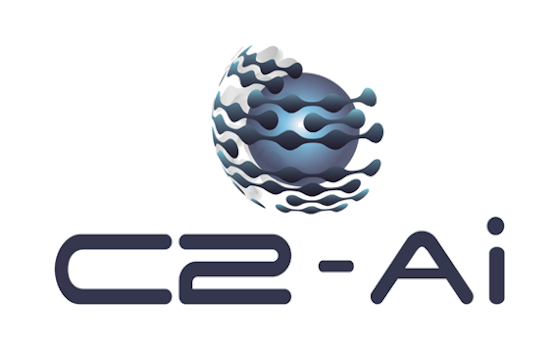 A new technology partnership formally announced, could help NHS, local government, and housing organisations collaborate to create an unprecedented understanding of the risks and needs of people in their care. Resulting intelligence could enable co-ordinated decisions that help to ease demand on recovering NHS services, prevent avoidable harm and A&E visits, and target community interventions where they can make the biggest impact for individuals.
A new technology partnership formally announced, could help NHS, local government, and housing organisations collaborate to create an unprecedented understanding of the risks and needs of people in their care. Resulting intelligence could enable co-ordinated decisions that help to ease demand on recovering NHS services, prevent avoidable harm and A&E visits, and target community interventions where they can make the biggest impact for individuals.
The two companies behind the initiative, clinical analytics specialist C2-Ai and software company Netcall, have already been individually working with significant impact to help NHS trusts, integrated care systems, social care, and housing providers, to enhance productivity and better support people on hospital waiting lists.
A new partnership agreement to combine the companies’ capabilities, could now allow NHS, housing, and care providers to collectively harness multi-sector data in entirely new ways, in order to create detailed risk profiles for individuals that can inform action based on new insights into each person’s needs.
Different organisations are already using Netcall to continually capture wellbeing and wellness measures from individuals in the community through multiple channels, but usually this data remains confined to a single organisation. With the agreement of various agencies, data could now be combined and applied to AI models from C2-Ai, that are already being used in high-impact NHS programmes to find and act for hidden high-risk patients waiting for treatment.
It means, for example, that a person on a waiting list for COPD treatment who reports worsening problems through any one of a range of channels including social media, chat, portals, telephone, or targeted questionnaires, could be identified early as being at high-risk of A&E admission, harm, or complications. This could reinforce an intelligence picture that could help NHS teams make decisions to prioritise medical intervention.
Housing providers and social care teams could also be alerted to intervene to address other previously unknown factors in the individual’s deterioration such as unaffordable heating, or living in poor housing with mould, which could be addressed through effective social housing provision.
And community pharmacists could take informed actions to help keep the individual well, in a co-ordinated approach that could keep the person out of hospital, improving their outcomes and preventing the need for additional costly care.
John Clarke, head of client solutions for healthcare at Netcall, said: "Patients are complex and are rarely viewed as one individual - they are looked at separately by acute hospitals, GPs, community care, mental health services, social care, as a local council’s citizen, or as a housing association tenant. But these services can and should positively impact each other, prioritising resource where it can make the biggest difference, by using the right intelligence.
"By combining up-to-date information from encounters across services and from regular communication with individuals, and then applying new data to AI already helping the NHS to find those most urgently in need, providers can harness a much more comprehensive and continuously updated risk profile.
"That's what we hope to achieve through our new partnership - to allow region-wide services to make much better decisions in response to the various needs of a person, and to work together to enable better outcomes, reduce health inequalities, and address the recovery burden on the NHS."
The new partnership is expected to support all three core shifts in health and social care being set out by the government: effective use of digital, prevention of worsening health and rising demand, and better supporting patients in community. It is also anticipated that it could have relevance to healthcare systems around the world.
Dr Mark Ratnarajah, UK managing director for C2-Ai, said: "This could be a seismic opportunity to become person-centric, rather than patient-centric: to understand and enable responses to changing risks by looking at whole person, rather than just the sum of their symptoms or conditions.
"We want to enable providers across different settings to keep individuals safe and well, to keep them out of hospital, and prevent avoidable downstream costs. This is already intuitively a good thing to do for many working across health and care, but is often not possible when a person’s information is held in lots of different places, making it challenging to understand and act on dependencies.
"We look forward to engaging conversations across healthcare, local government and housing, that we hope will lead to new ways to anticipate needs and make effective and efficient use of scarce resources, including human capital by doing more of the right things, at the right time, and in the right place."
About Netcall
Netcall is a leading provider of low-code and customer engagement solutions. A UK company quoted on the AIM market of the London Stock Exchange. By enabling customer-facing and IT talent to collaborate, Netcall takes the pain out of big change projects, helping businesses dramatically improve the customer experience, while lowering costs. Over 600 organisations in financial services, insurance, local government and healthcare use the Netcall Liberty platform to make life easier for the people they serve. Netcall aims to help organisations radically improve customer experience through collaborative CX.
About C2-Ai
C2-Ai is a trusted NHS digital partner. The company has provided national support and its technology is used in a wide number of NHS trusts and across 11 countries.C2-Ai provides an AI-backed suite of hospital care quality/efficiency improvement tools developed from more than 30 years of research, ten years of development and the world’s largest and geographically broadest patient data set (from 46 countries). In the UK these systems have a track record for delivering demonstrable improvements in care.